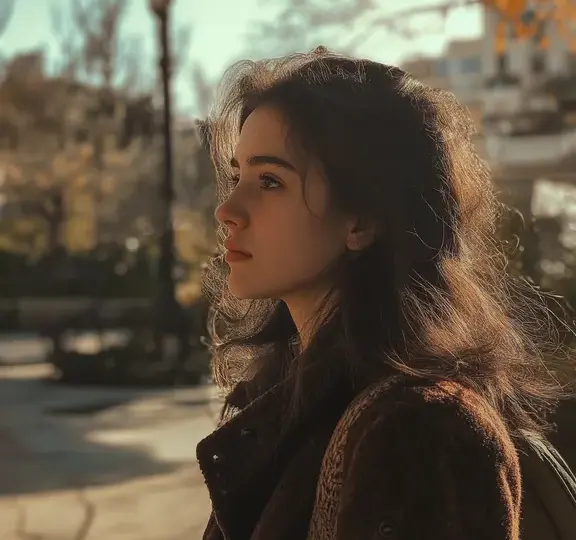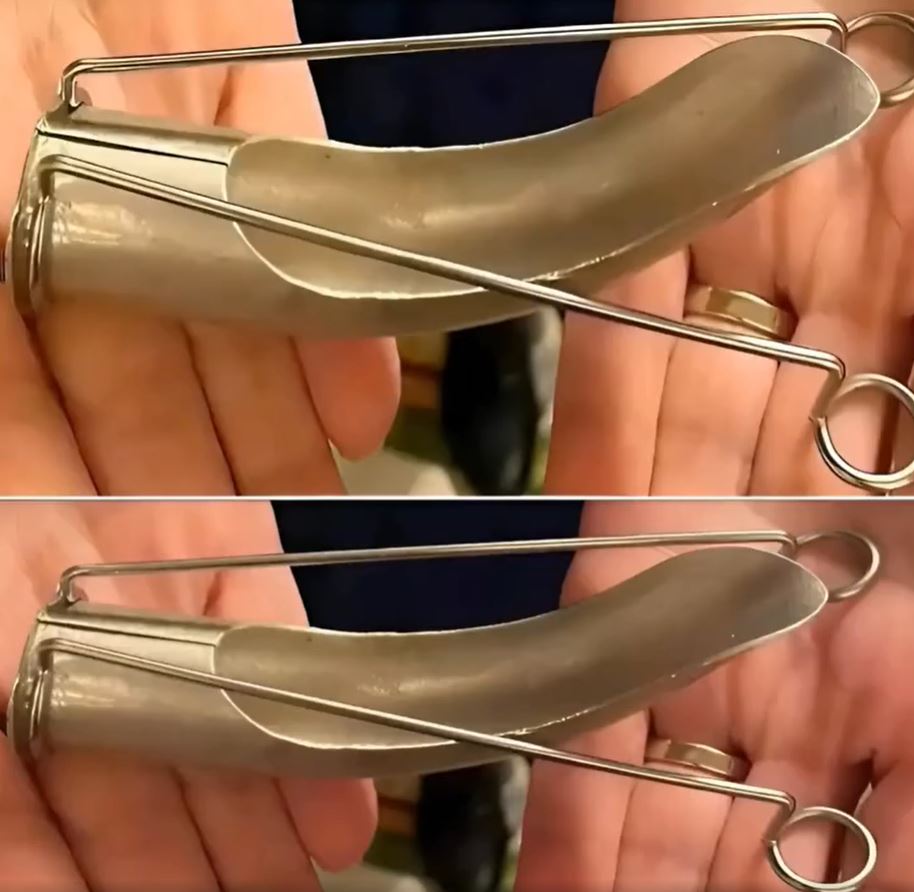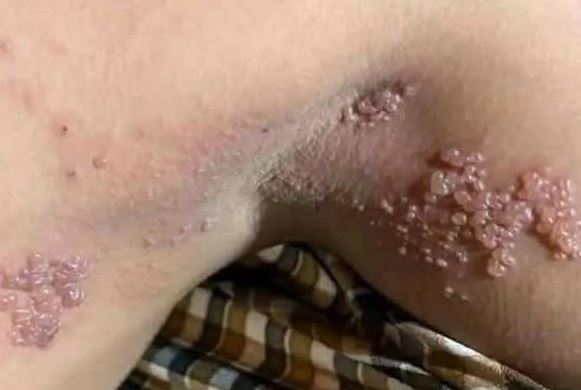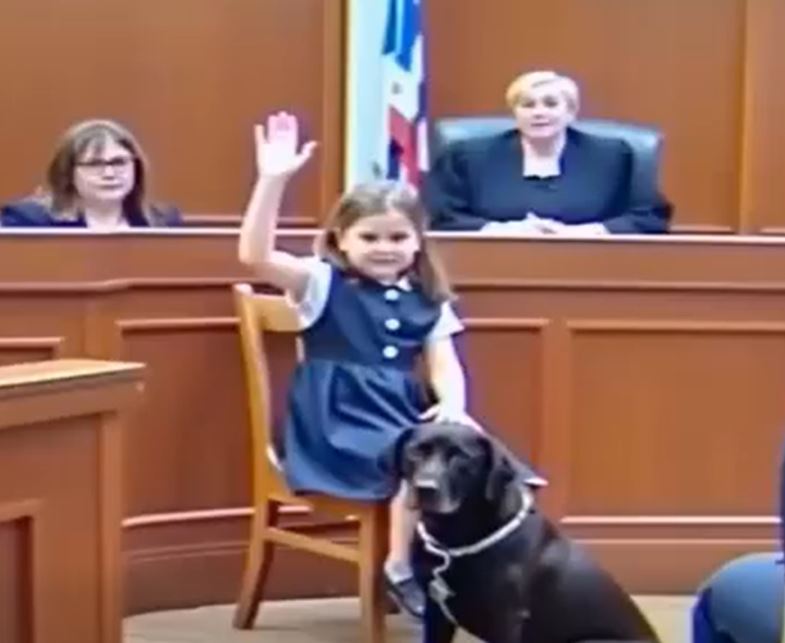I Helped a Blind Elderly Woman Walk Home — The Next Day, Her Family Came to My House with Police Officers.
It started as an ordinary morning, a quiet farewell to my father at the cemetery, but what unfolded over the next twenty-four hours would shake me to my core. By the next day, I found myself sitting in a police station, accused of a crime I did not commit, all because of a simple act of kindness toward an elderly blind woman. Grief has a peculiar way of distorting time. Days stretch and blur, and yet every memory pierces sharply, as if freshly made. It had been six months since I lost my father, a man whose absence left a hollow ache in my chest. Though life went on outwardly, inwardly the pain lingered, persistent and unyielding.
I sought comfort in weekly visits to his grave, sharing with him the thoughts and words I could no longer voice while he was alive. That morning, the air was crisp, carrying the scent of damp earth and freshly fallen leaves. A gentle breeze rustled through the cemetery’s towering oaks, and sunlight filtered through the branches, creating dancing patterns on the gravestones. I stood by my father’s grave, clutching a bouquet of white lilies—his favorite flowers—and whispered, “Goodbye, Dad,” brushing away a tear that traced a slow line down my cheek.
As I turned to leave, I noticed a frail figure a few rows over near a freshly dug grave. An elderly blind woman stood there, dressed in a simple black dress, her white cane tapping lightly against the ground. Dark glasses shielded her eyes, but her slumped shoulders spoke volumes about her vulnerability. “Excuse me, ma’am,” I said softly, approaching her. “Do you need help?” She turned her head toward me, lips curling into a faint, grateful smile. “Oh, thank you, dear. I’d appreciate it if you could walk me home. My sons were supposed to pick me up, but I think they forgot.”

I felt a pang of anger for her. Who abandons their blind mother at a cemetery in the middle of her grief? “Of course,” I said without hesitation. “I’d be happy to help.” As we walked down the quiet streets, she introduced herself as Kira. Her husband, Samuel, had passed away just days before. “He was my world,” she said, voice trembling. “We were married for forty-two years. Losing him… it’s as if the ground beneath me has shifted, and nothing is steady anymore.” I squeezed her arm gently, offering what comfort I could. “I’m so sorry for your loss.”
“They didn’t even wait with me at the cemetery,” she said bitterly. “My sons, Ethan and Mark, promised they’d be back in half an hour. I waited two. Samuel always warned me, said they’d be the death of me, but I didn’t want to believe it.” Her words hinted at deeper family fractures, but I didn’t push for details. We arrived at her modest brick home, a charming little house surrounded by a garden of roses in full bloom. “Would you like to come in for tea?” she asked. I hesitated, but the warmth in her eyes made me relent. Inside, the house smelled faintly of lavender and honey. Faded photographs adorned the walls, one in particular catching my eye—a younger Kira with Samuel, hands intertwined, standing in front of the Eiffel Tower.
“Samuel installed cameras all over the house,” Kira said as she prepared the tea. “He didn’t trust the boys. He used to say, ‘They’re more interested in what’s mine than in me.’” Her words lingered with me as I left an hour later, promising to check on her soon. That simple act of kindness—walking her home, sharing tea, and listening—would soon spiral into chaos I never anticipated. The next morning, I was jolted awake by a pounding on my front door. Heart racing, still half-asleep, I stumbled toward the sound. “Open up!” a male voice shouted. I swung the door open to find two men, one around thirty-five, broad-shouldered and furious, pointing at me. Behind them stood a police officer. “That’s her! She was in our mother’s house yesterday!” the older man barked. “Good morning, ma’am,” the officer said, calm but firm. “Are you acquainted with a woman named Kira?”

“Yes,” I stammered, mind spinning. “I walked her home from the cemetery yesterday.” The younger man, around twenty-five, stepped closer, his face red with anger. “And then what? You decided to rob her blind?” “What?” I gasped. “I would never—” “Don’t play innocent,” the older man snapped. “Mom told us you were in her house. She said you stayed for tea. Who else could’ve taken the money and jewelry?” My stomach dropped. “This has to be a mistake. I didn’t take anything!” The officer raised a hand to silence them. “Ma’am, I’m going to need you to come with us to clarify this situation.”
A chill ran down my spine as I grabbed my coat. How could a kind gesture have turned so disastrously wrong? At the station, Kira was already seated in the corner, her cane resting against her knee. Her face lit up when she saw me. “Thank goodness,” she said, reaching out. “I told them you didn’t do it.” “Then why am I here?” I asked, nervous and confused. “Because my sons are fools,” she said sharply, turning to Ethan and Mark, who stood stiffly at the door. “And greedy.” “They accused her of stealing, but I know better,” Kira continued. “Samuel installed cameras everywhere. Officer, please check the recordings.” The officer raised an eyebrow. “Cameras?”
Kira nodded. “In the living room, hallway, and kitchen. Samuel didn’t trust anyone—not even them.” Ethan paled. “Mom, you don’t have to do this.” “I think I do,” she replied firmly. “I’m tired of covering for you boys.” Suspense filled the room as officers retrieved the footage. An hour later, the videos confirmed everything: I had helped Kira make tea and left shortly after, waving goodbye. Moments later, Ethan and Mark were caught on camera rifling through drawers and pocketing jewelry and cash.
“You idiots,” Kira muttered. The officer turned to the brothers. “Care to explain?” Ethan stammered. “We… we were looking for paperwork.” “For paperwork in a jewelry box?” the officer retorted. Mark buried his face in his hands. “It wasn’t supposed to go like this.” “No,” Kira said coldly. “It wasn’t. You’ve betrayed me, and you’ve dishonored your father’s memory.” The brothers were arrested on the spot, charged with theft and filing a false report. I sat beside Kira, stunned by how quickly the truth had surfaced. “I’m so sorry, dear,” she said, holding my hand tightly. “They’ve always been this way, taking without giving back. Samuel warned me, but I didn’t want to believe it.”
I walked her home that evening, and she shared more of her story. “They used to be different,” she said. “Somewhere along the way, greed replaced their love. It’s never really about money—it’s entitlement.” “Why didn’t you confront them sooner?” I asked. She sighed. “A mother’s heart is complicated. You hope for change, even when it’s clear nothing will. Love blinds you sometimes.” Over the following weeks, I visited her more often. Our bond, forged in unexpected circumstances, deepened. Her house, once tense and shadowed with betrayal, became a haven of warmth. “Peace doesn’t come easy,” Kira said one afternoon, sunlight streaming through lace curtains. “Samuel and I built this life together, and yet it was threatened by the people we loved most.”
I reached across the table to squeeze her hand. “You’re stronger than you know, Kira. Samuel knew that too.” She smiled faintly. “Maybe he sent you to me. Maybe that’s why you were there.” When I left that day, she pulled me into a gentle embrace. “Thank you,” she whispered. “For being my light in a dark moment.” I walked home beneath the fading sun, feeling lighter than I had in months. Her words lingered: “Sometimes, strangers become family in ways you never expect.”
It started as an ordinary morning, a quiet farewell to my father at the cemetery, but what unfolded over the next twenty-four hours would shake me to my core. By the next day, I found myself sitting in a police station, accused of a crime I did not commit, all because of a simple act of kindness toward an elderly blind woman. Grief has a peculiar way of distorting time. Days stretch and blur, and yet every memory pierces sharply, as if freshly made. It had been six months since I lost my father, a man whose absence left a hollow ache in my chest. Though life went on outwardly, inwardly the pain lingered, persistent and unyielding.
I sought comfort in weekly visits to his grave, sharing with him the thoughts and words I could no longer voice while he was alive. That morning, the air was crisp, carrying the scent of damp earth and freshly fallen leaves. A gentle breeze rustled through the cemetery’s towering oaks, and sunlight filtered through the branches, creating dancing patterns on the gravestones. I stood by my father’s grave, clutching a bouquet of white lilies—his favorite flowers—and whispered, “Goodbye, Dad,” brushing away a tear that traced a slow line down my cheek.
As I turned to leave, I noticed a frail figure a few rows over near a freshly dug grave. An elderly blind woman stood there, dressed in a simple black dress, her white cane tapping lightly against the ground. Dark glasses shielded her eyes, but her slumped shoulders spoke volumes about her vulnerability. “Excuse me, ma’am,” I said softly, approaching her. “Do you need help?” She turned her head toward me, lips curling into a faint, grateful smile. “Oh, thank you, dear. I’d appreciate it if you could walk me home. My sons were supposed to pick me up, but I think they forgot.”

I felt a pang of anger for her. Who abandons their blind mother at a cemetery in the middle of her grief? “Of course,” I said without hesitation. “I’d be happy to help.” As we walked down the quiet streets, she introduced herself as Kira. Her husband, Samuel, had passed away just days before. “He was my world,” she said, voice trembling. “We were married for forty-two years. Losing him… it’s as if the ground beneath me has shifted, and nothing is steady anymore.” I squeezed her arm gently, offering what comfort I could. “I’m so sorry for your loss.”
“They didn’t even wait with me at the cemetery,” she said bitterly. “My sons, Ethan and Mark, promised they’d be back in half an hour. I waited two. Samuel always warned me, said they’d be the death of me, but I didn’t want to believe it.” Her words hinted at deeper family fractures, but I didn’t push for details. We arrived at her modest brick home, a charming little house surrounded by a garden of roses in full bloom. “Would you like to come in for tea?” she asked. I hesitated, but the warmth in her eyes made me relent. Inside, the house smelled faintly of lavender and honey. Faded photographs adorned the walls, one in particular catching my eye—a younger Kira with Samuel, hands intertwined, standing in front of the Eiffel Tower.
“Samuel installed cameras all over the house,” Kira said as she prepared the tea. “He didn’t trust the boys. He used to say, ‘They’re more interested in what’s mine than in me.’” Her words lingered with me as I left an hour later, promising to check on her soon. That simple act of kindness—walking her home, sharing tea, and listening—would soon spiral into chaos I never anticipated. The next morning, I was jolted awake by a pounding on my front door. Heart racing, still half-asleep, I stumbled toward the sound. “Open up!” a male voice shouted. I swung the door open to find two men, one around thirty-five, broad-shouldered and furious, pointing at me. Behind them stood a police officer. “That’s her! She was in our mother’s house yesterday!” the older man barked. “Good morning, ma’am,” the officer said, calm but firm. “Are you acquainted with a woman named Kira?”

“Yes,” I stammered, mind spinning. “I walked her home from the cemetery yesterday.” The younger man, around twenty-five, stepped closer, his face red with anger. “And then what? You decided to rob her blind?” “What?” I gasped. “I would never—” “Don’t play innocent,” the older man snapped. “Mom told us you were in her house. She said you stayed for tea. Who else could’ve taken the money and jewelry?” My stomach dropped. “This has to be a mistake. I didn’t take anything!” The officer raised a hand to silence them. “Ma’am, I’m going to need you to come with us to clarify this situation.”
A chill ran down my spine as I grabbed my coat. How could a kind gesture have turned so disastrously wrong? At the station, Kira was already seated in the corner, her cane resting against her knee. Her face lit up when she saw me. “Thank goodness,” she said, reaching out. “I told them you didn’t do it.” “Then why am I here?” I asked, nervous and confused. “Because my sons are fools,” she said sharply, turning to Ethan and Mark, who stood stiffly at the door. “And greedy.” “They accused her of stealing, but I know better,” Kira continued. “Samuel installed cameras everywhere. Officer, please check the recordings.” The officer raised an eyebrow. “Cameras?”
Kira nodded. “In the living room, hallway, and kitchen. Samuel didn’t trust anyone—not even them.” Ethan paled. “Mom, you don’t have to do this.” “I think I do,” she replied firmly. “I’m tired of covering for you boys.” Suspense filled the room as officers retrieved the footage. An hour later, the videos confirmed everything: I had helped Kira make tea and left shortly after, waving goodbye. Moments later, Ethan and Mark were caught on camera rifling through drawers and pocketing jewelry and cash.
“You idiots,” Kira muttered. The officer turned to the brothers. “Care to explain?” Ethan stammered. “We… we were looking for paperwork.” “For paperwork in a jewelry box?” the officer retorted. Mark buried his face in his hands. “It wasn’t supposed to go like this.” “No,” Kira said coldly. “It wasn’t. You’ve betrayed me, and you’ve dishonored your father’s memory.” The brothers were arrested on the spot, charged with theft and filing a false report. I sat beside Kira, stunned by how quickly the truth had surfaced. “I’m so sorry, dear,” she said, holding my hand tightly. “They’ve always been this way, taking without giving back. Samuel warned me, but I didn’t want to believe it.”
I walked her home that evening, and she shared more of her story. “They used to be different,” she said. “Somewhere along the way, greed replaced their love. It’s never really about money—it’s entitlement.” “Why didn’t you confront them sooner?” I asked. She sighed. “A mother’s heart is complicated. You hope for change, even when it’s clear nothing will. Love blinds you sometimes.” Over the following weeks, I visited her more often. Our bond, forged in unexpected circumstances, deepened. Her house, once tense and shadowed with betrayal, became a haven of warmth. “Peace doesn’t come easy,” Kira said one afternoon, sunlight streaming through lace curtains. “Samuel and I built this life together, and yet it was threatened by the people we loved most.”
I reached across the table to squeeze her hand. “You’re stronger than you know, Kira. Samuel knew that too.” She smiled faintly. “Maybe he sent you to me. Maybe that’s why you were there.” When I left that day, she pulled me into a gentle embrace. “Thank you,” she whispered. “For being my light in a dark moment.” I walked home beneath the fading sun, feeling lighter than I had in months. Her words lingered: “Sometimes, strangers become family in ways you never expect.”


